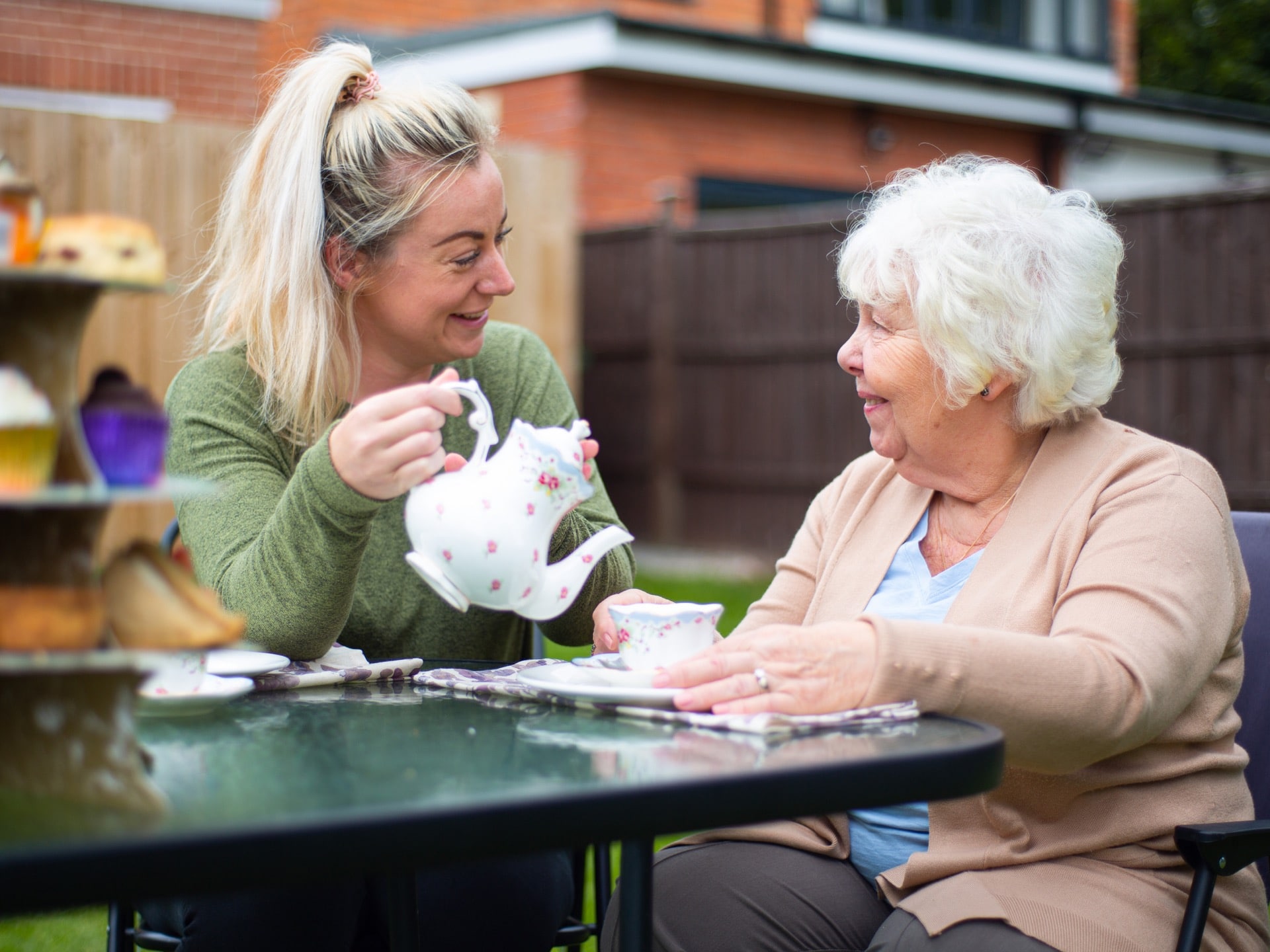The Importance of Staying Hydrated for The Elderly

Why Do Older People In Particular Need To Stay Hydrated?
Water is vital to everyone’s bodies; however, it is especially important for older people to remain hydrated. Age UK tells us this is because water “lubricates the joints and eyes, aids digestion, flushes out waste and toxins, and keeps the skin healthy.” People living with Alzheimer’s, or the effects of a stroke may not realise they are thirsty as the sensations of thirst can be reduced under such circumstances. This is why it’s especially important to ensure that people who cannot recognise the signs of dehydration themselves are assisted to keep drinking fluids.
Assistance with nutrition and hydration is just one of the benefits that can arise from having a Helping Hands carer in your home. Our carers help to avoid dehydration in elderly people by monitoring what and when they’re drinking and encouraging them to consume more fluids in a way that suits the individual’s needs.

Can Elderly Dehydration Lead To Any Other Problems?
Symptoms of dehydration in seniors varies from person to person, however there are some clear signs to look out for if you suspect dehydration. These need to be acted upon if noticed because ignoring dehydration can lead to serious complications, and eventually, death. Signs that someone may be dehydrated include:
Sunken eyes
Your skin becomes less plump without essential moisture
Dark yellow/infrequent peeing
Could lead to urinary infections or incontinence
Dry mouth, lips and tongue
If the salivary glands in your mouth do not produce enough
Dizzy spells
This could increase your risk of tripping or falling
Fatigue
Because the body needs water to work well and keep cool
Confusion
The brain is made up of about 85% water so needs fluid to work properly
How To Promote Hydration for Older People
Promoting hydration for older people is not always easy, which is why elderly dehydration is a very real risk. While the symptoms of dehydration in elderly people may be familiar, that doesn’t mean getting older people to consume more liquids is straightforward. Some older people are reluctant to drink fluids because of the fear of choking, or because they are worried about their continence. Being unable to mobilise to the bathroom in time to use the toilet may make a person avoid drinking regularly; however, flushing toxins and waste out of the body is essential to ensure we remain well. Worries about finding a toilet when out and about also prevent many people from enjoying their local surroundings; however, Age UK also produces a free toilet card, which can be ordered here and discreetly advises people in businesses and venues that you need to use a toilet urgently.
With a little forward-planning, the concerns around why someone isn’t drinking can be challenged by:
Discover Expert Elderly Care with Helping Hands
The symptoms of dehydration in older people are not always easy to spot, especially if loved ones don’t have much spare time to spend with elderly relatives or live far away. This is another great reason for having a Helping Hands carer with them on either a visiting or live-in care basis, as they will be able to monitor them around the clock and ensure any symptoms are swiftly acted on. The carer will notice changes in the person from day-to-day and will know what to do to try and rectify the situation, or how to raise the alarm if the person’s condition becomes serious. Hydration is not the only benefit of having care and support at home though as we’ll support every aspect of an individual’s daily routine, such as personal care, meal preparation, mobility, medication support and housekeeping. We’ll also be an essential part of helping you to live your very best life possible in the community you love, while supporting you to remain as independent as possible in the home that means everything to you. And because all of our services are fully regulated by the Care Quality Commission and the Care Inspectorate Wales, you’ll always be in the very best hands with us.
